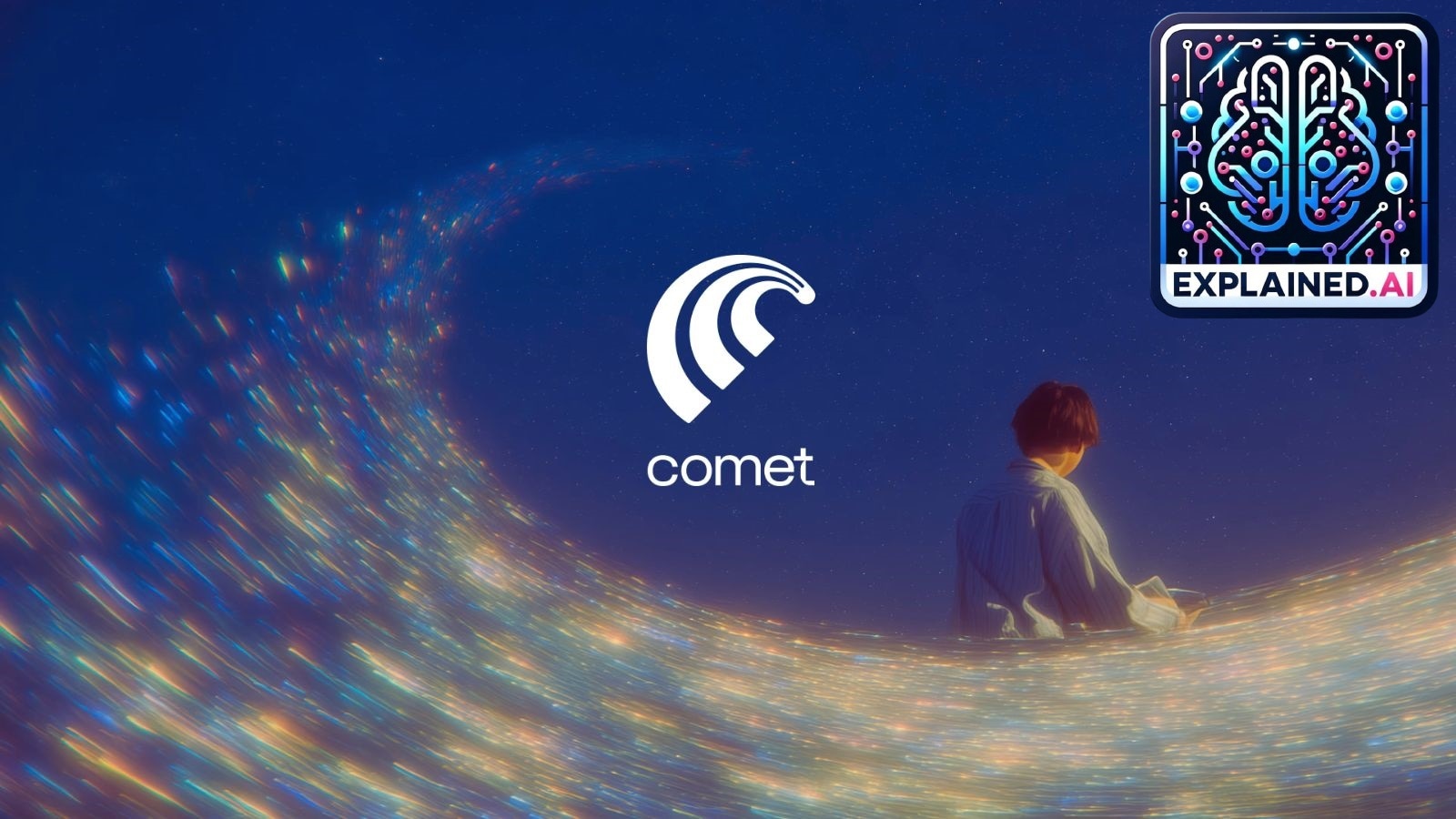Perplexity, known for its AI-powered search engine, earlier this month introduced its new AI-first browser, Comet, which is designed to help users assign various web tasks to AI agents. The browser is still in early access under the Perplexity Max plan, which costs $200 a month.
From user responses and early reviews, Comet seems to be offering a glimpse into the future where web browsing will be a completely different experience. It will be like users delegating a task to an agent who would browse for them to accomplish it. In essence, a user will not be directly interacting with websites, but an AI agent will be doing it in the browser for them.

How is Comet different from just using the Perplexity browser? Why does the Aravind Srinivas-led AI company need to build an entirely new web browser? What can Comet do?
What is Comet?
Comet looks a lot like Google Chrome, and there is a good reason for that. The browser is built on the Chromium framework, which is an open-source architecture framework for web browsers maintained by Google. This framework is also the backbone of popular browsers such as Chrome, Microsoft Edge, and Opera. Comet would support Chrome extensions, bookmarks, and even sync with a user’s settings if they import them.
The AI-first browser is built from the ground up with Perplexity AI agents that are integrated directly into the browser. It not only helps users with search but also acts on their behalf across tabs, services, and platforms — this is why Perplexity describes Comet as an “agentic browser”.
Its search capabilities come from Perplexity’s answer engine that is based on a mixture of foundational LLMs like GPT-4o and Claude 4.0 Sonnet, along with its proprietary model Sonar.
But why build a whole browser?
Perplexity AI was launched a month after OpenAI’s ChatGPT created ripples across the world. The AI-powered search engine rapidly grew in popularity, which stems from its unique positioning as an ‘answer engine’, which is radically different from a traditional search engine or AI chatbots. Perplexity was among the first to combine AI with traditional web search with accurate and real-time answers to any question.
Story continues below this ad
However, Comet is local and standalone in what seems like platform independence. In case Perplexity chose to build on top of Safari or Chrome, then it would likely be second to Google or Apple’s native AI tools. As an independent browser, Comet gives Perplexity full control. When it comes to local context access, cloud-based browser agents would require one to log in and start from scratch. But, with Comet, the agent already knows what tab a user is viewing and what they are doing. This eliminates the need for copying, pasting, or reloading. Since it’s local, the agent can interact with open pages and logged-in services instantly without additional authentication.
What can Comet actually do?
The futuristic browser comes with some powerful features that make web browsing efficient and more productive. With Comet, you browse less and prompt more, and the AI takes care of the rest. It comes with a plethora of use cases that could likely make it a daily essential, much like what Google Chrome is to millions of users. From scheduling meetings from Gmail to comparing products across tabs, Comet is more than a browser. This is possible because it can read an email, find a suitable time for a user’s calendar, draft a reply and create a tentative event with a Google Meet link. And all of these from within Gmail, without switching tabs.
Similarly, if a user is shopping for a camera online, they can ask Comet to summarise and compare specs like recording quality or frame rates. If they have multiple tabs open, Comet will pull context from all these open tabs and offer a clean, structured summary to help them make an informed decision.
One of the most useful use cases is the ability to summarise videos or articles. Comet can reportedly summarise an open YouTube video or web article in seconds. The video summaries are generated using transcripts and content on web pages. Some users with early access have also revealed that Comet can also accept LinkedIn requests. It can review pending requests and bulk-accept the ones it deems most relevant, saving users time.
Story continues below this ad
Comet’s built-in assistant is placed at the top-right corner. The assistant can help in summarising the page a user is on; perform actions like clicking, filling forms or navigating; look up things across open tabs, and act simultaneously across sites.
Users can even @mention tabs by name for specific tasks at open pages. For example, @YouTube – find the top comment. It needs to be noted that Comet will ask a user for confirmation before posting and notify them of the outcome. However, in some cases limitations imposed by platforms may prevent Comet from posting or engaging with comments.
Why is it a big deal?
After years of stagnant innovation in web browsing, Comet seems to be signalling a huge shift in how the world will use the internet. Users will no longer be required to go on manually clicking through dozens of tabs, as they can now delegate tasks to agents that will understand context, objectives, and user preferences.
Web browsing backed by AI agents is crucial in times when there is an overload of AI-generated content. Browsers like Comet could help filter through the clutter and deliver accurate information faster.
Story continues below this ad
The biggest catch with Comet for now is its availability, as it is a part of Perplexity Max, which is priced at $200 a month. Over time the company may lower the barrier or release a limited free tier if rivals OpenAI or Google move quickly with their own agentic browsers. Perplexity will roll out invite-only access slowly to its waitlist over the summer, and new users will receive a limited number of invites to share.








































